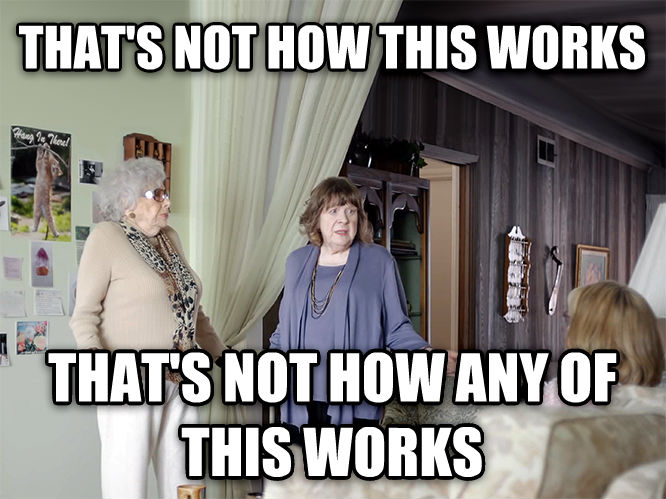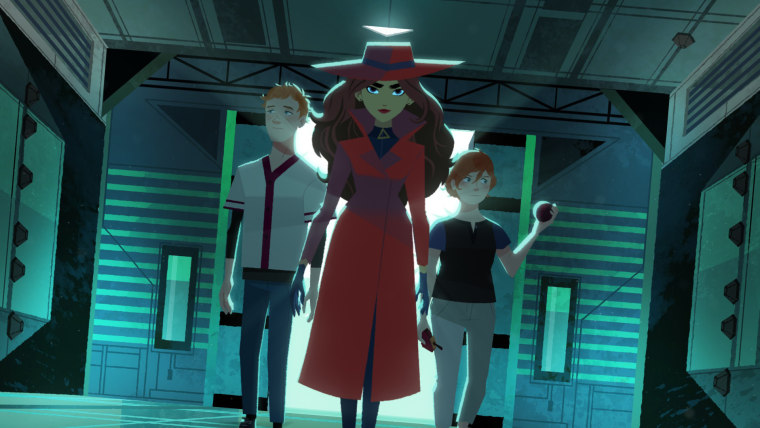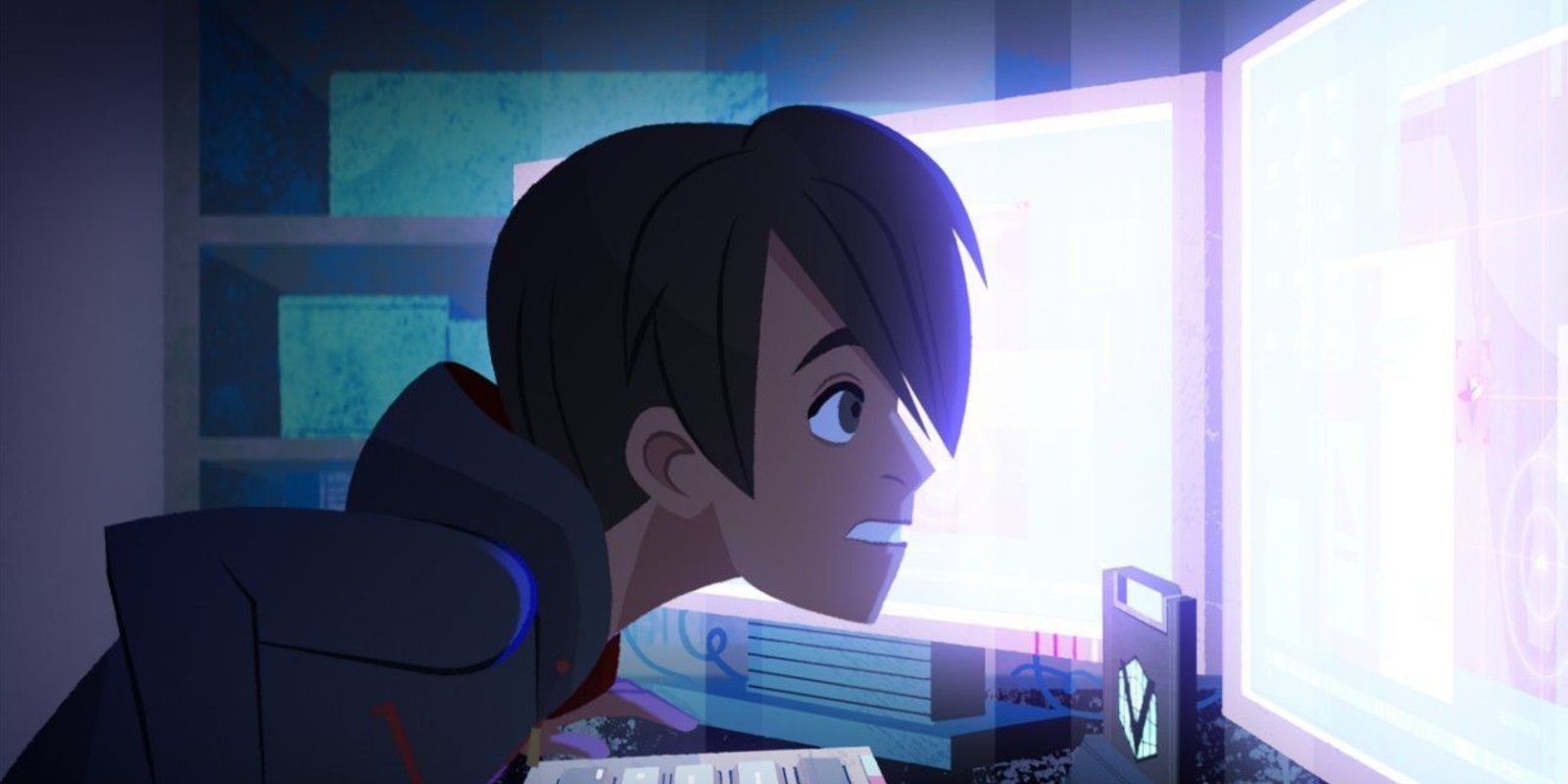You can either die and be "Making Fiends," or live long enough to see yourself become "SpongeBob."
There are times where you can become too successful for your own good. This is one of those times.
Six years ago this week, Nickelodeon aired the series premiere of its latest cartoon, The Loud House. The show follows Lincoln Loud, a boy who experiences life in Royal Woods, Michigan while dealing with ten sisters. It was created by animation veteran Chris Savino, and has since turned into one of Nickelodeon's most successful properties. The Loud House is now a franchise, with a spin-off series (and a live-action one on the way), a feature film, and a live-action Christmas film. And the show itself has no plans to slow down any time soon, having been renewed for a seventh season.
We're at the point now where you can't tell the story of Nickelodeon without including The Loud House. It became a runaway hit and was the first Nicktoon in years to not only gain popularity, but the kind of popularity that hasn't been seen since SpongeBob SquarePants. Nickelodeon finally gained an animated show that could take the reins and lead them into the future.
But along the way, something happened. And six years later, The Loud House has gone from receiving near-universal praise to being public enemy number one. In 2022, people are tired of The Loud House. They want the series to end, or at least change its approach because of an apparent decline that's impossible to ignore. Everybody was looking for a savior back in 2016, and now, everybody feels like they put their faith in the wrong show. Why did this happen? And is there an actual decline in quality, or are people just recognizing that The Loud House is an old man in television years?
For a long time, Nickelodeon was ridiculed and despised, a lot of it being warranted. The golden age was long gone, their live-action programming became more sterile and heartless. And worse than that, SpongeBob was the only show the network seemed to give any kind of affection. I remember when there was a new episode of SpongeBob every day at 5:00. For years, it seemed like there was a new episode all the time. And reruns dominated Nick's schedule, to the point where you were guaranteed to see multiple SpongeBob episodes every day of your life. Not only was the show being over-saturated and exploited, it also had a very noticeable decline in quality. I'm more forgiving with the later seasons than most people, but I know the show's best years were the first three seasons. And I know that the later seasons seemed a lot more childish in comparison.
This was also when Nickelodeon was desperate to get another SpongeBob, that next big show that could blow up and make the network millions. For years, many animated series stepped up to the plate and very few of them could even get on base. If Nickelodeon wasn't getting SpongeBob-level ratings from its cartoons, they got cut off at the knees and buried alive. People who worked for Nickelodeon during this era have alluded to this. This is also the same Nickelodeon that rejected Adventure Time, which turned into a monster hit for Cartoon Network so what kind of show were they looking for? Fanboy and Chum Chum? Sanjay & Craig? Bucket & Skinner's Epic Adventures? This is with whom they placed their faith?
I know Bucket & Skinner wasn't animated, but I'm just amazed that show ever made it to air. How am I supposed to take you seriously when your parents named you Bucket?
So, the fact that The Loud House was able to survive Nickelodeon's politics and achieve far beyond anyone's expectations should be applauded. If things were different, the network could have easily buried the show if they felt like it. It could have ended up just like Harvey Beaks, which was another show that people looked at as the savior when it first came out. It also helps that The Loud House is a genuinely good show. It was able to connect with people because of its charm, snappy dialogue, interesting characters, and relatable nature. Half the time, it feels more like a show that would have been around in the 90s. On paper, it really doesn't seem like anyone should have a problem with this show. For a while, the worst thing I heard about it was that it was boring.
So, what changed? Is there really a decline on the level that SpongeBob had?
No. At least I don't think so. The show is still as entertaining as it was when it came out. Some episodes are clearly better than others, but I don’t see anything alarming going on with the show. The characters aren't parodies of themselves, the style of humor hasn't degraded, the stories are still told in a competent way, and it's not like the writers are trying to repeat themselves over and over. These are things that kill any show, live-action or animated. Rugrats went through it, SpongeBob went through it, The Fairly OddParents sure as hell went through it. But The Loud House isn't there yet. Could it get there? Definitely, but six seasons in, it's not there.
I'm not approaching this from a biased point of view, either. I always liked The Loud House, but I was never a super fan. I definitely kept up with the show more in the earlier seasons, but that has less to do with not liking the show anymore than just not having the same time or energy I used to have. I've seen multiple episodes from seasons four and five, which is where people say the decline started sinking in. Honestly, it's easier for me to name good episodes from those seasons than bad episodes. The one thing I have noticed that the show does differently is it's not really Lincoln's show anymore. That's not a bad thing. When the show started, it was important that Lincoln was the focus because he was the character meant to guide us through the experience of growing up in a big family. His personality isn't as exaggerated as the other characters. As time went on and the sisters became more defined, it wasn't necessary to have every episode be about Lincoln. The others were capable of carrying the show without him. I don't think Lincoln is anywhere near the most popular character on the show. I've seen Lori and Lola and Luna get more love than him.
Some people have their theories on why the show isn't good anymore. Some say it was never that good to begin with, some say it fell off after Chris Savino was fired, some say it happened around season four. Personally, the show never stopped being good. It just became a victim of its own success.
The Loud House is like that musical artist that broke out and became mainstream, with Billboard hits, platinum records, and Grammys. Suddenly, the people who rooted for the show when it was "underground" started thinking it went "pop" and turned on it, even if the music was still at a high quality. I don't think The Loud House would get the same criticism if it didn't have multiple spinoffs and movies and hadn't reached six seasons. People just get tired of seeing what's on top and want a new face. The same thing happened to Rick and Morty. A couple years ago, it was white hot. In fact, it was around the same time The Loud House was white hot. A couple years later, it's not the cool thing anymore. It's a veteran, it's an old friend. Rick and Morty achieved far beyond what anybody could have expected and became hated for it. Now, people would rather pretend they never liked the show in the first place than just admit they moved on and like different things now. It happens.
I feel like history will look back favorably on The Loud House. It was Nickelodeon's first animated hit in years, even gaining mainstream attention. It came during a time when Nickelodeon was still somewhat interesting to talk about, and still provided enough material for this blog. It was able to bring back an older style of comedy without feeling outdated. It even showed LGBT characters without needing to make a big deal about it. In fact, someone could watch The Loud House enough times without even knowing it has LGBT characters. It means something for progression and representation when Luna and Clyde's dads are written with actual personalities, not just presented as the gay characters to score points with society.
If the day comes when The Loud House truly declines in quality, I'll be there to tell you about it. But until then, all I see is a bunch of people annoyed that Nickelodeon found something good for the first time in a long time and decided to milk it for all it was worth. How many times have we seen that before? You're still not used to it? After three decades?
By the way, happy anniversary Loud House.
EXTRA THOUGHTS
-I was inspired to write this because this past weekend, Mr. Enter posted a negative review of the episode "No Such Luck." I'm not going to defend that episode, but there's been a real backlash against The Loud House for about two years now and it's just going to get worse. I felt like it was time to address it in some way, but I found out while writing this that May 2 marked the six-year anniversary of the series premiere. So, great timing, right?
-I've actually been a Loud House fan since the original short was released back in 2015, when Sean Ryan Fox (Jasper from Henry Danger) was the voice of Lincoln. The fact that the show has become so successful is something that should be celebrated, not criticized. Although, I don't agree with everything the franchise does. We don't need a live-action spinoff. The Christmas movie was more than enough. In fact, we don't need a live-action spinoff of any animated series ever again. It's like the reverse of what happened in the 70s and 80s when shows like Happy Days and Punky Brewster were made into cartoons. Neither trend is worth the effort.
-Episodes from seasons four and five that go against what people are saying: "Any Given Sundae," "A Grave Mistake," "A Mutt Above," "Stall Monitor," "Geriantics," "Exchange of Heart/Community Disservice," "Deep Cuts," "Sister Act," "Don't You Fore-get About Me," "Strife of the Party," "Ghosted!," 'Diamonds Are for Never," "Grub Snub," "In the Mick of Time," "Lori Days," "Farm to Unstable," "Diss the Cook/For Sale by Loner," "How the Best Was Won."



